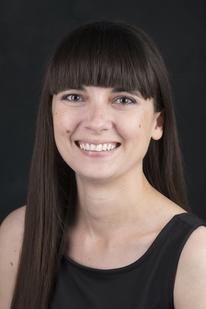Starting college life as a young adult is both an exciting and stressful time. Starting in the midst of a pandemic is even more of an adjustment. A new first-year seminar course is helping students to adapt to their new way of life.
"Living Your Best Life: Applying Positive Psychology" (PSY 1100) serves as an alternative to the first-year seminar "Learning in Community" (UST 1000). First-year students at UMD are required to complete either of these courses (or another approved alternative course) to teach them about successfully adjusting to college life.
The new course includes topics covered in UST 1000, but also covers topics in positive psychology. While UST 1000 is offered for 1-2 credits, the new PSY 1100 course is worth 3 credits and also counts for the “Cultural Diversity in the US” liberal education requirement.
Rhea Owens, assistant professor in the UMD Department of Psychology, teaches the course. Owens first became interested in positive psychology during her undergraduate program at the University of Wisconsin–Stevens Point. “I have always been an optimistic, hopeful, and positive person,” she notes, “When I learned that positive psychology was a subdiscipline of psychology, I was hooked!”
Owens says the class focuses on student success, with topics such as setting habits and goals; assessing and developing personal strengths; stress and time management; and inclusivity. The course is designed for incoming students, and students must have no more than 30 completed credits to take the course. In the future, Owens hopes to offer a similar course for upper-level students.
While the course is not required at this time, Owens hopes that students will choose to take it. “I think this class would be helpful for first-year students given the content covered. Each of these topics, in my opinion, is very helpful for new students to help them be successful and hopefully enhance their well-being. What they learn in the course can be applied to their time later in college and beyond.”
